#william f. buckley jr.
Text
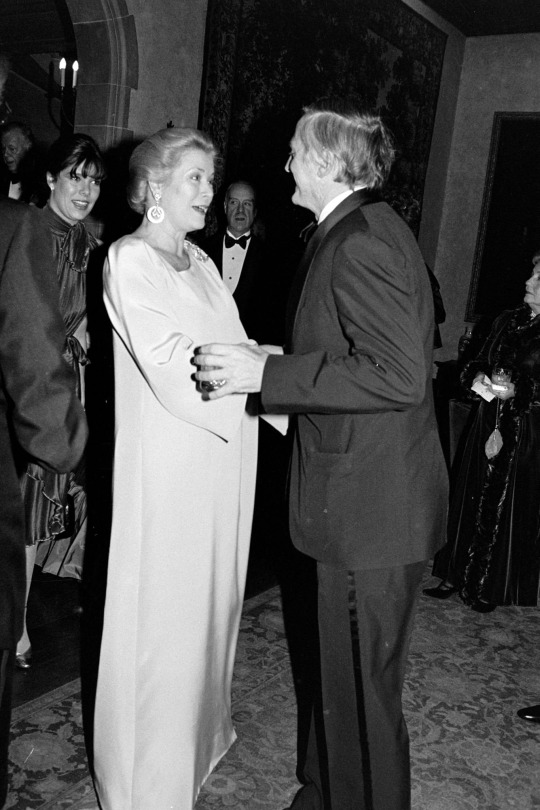
Princess Caroline of Monaco, Princess Grace of Monaco and William F. Buckley Jr. attend a party at the Lauder residence in New York City on December 12, 1980.
10 notes
·
View notes
Text
Gay-bashing on the political right particularly pained Liebman, and in his letter in [American "conservative" magazine] National Review he writes that "in many years of service to The Cause I've sat in rooms where people we both know _ brilliant, thoughtful, kind people _ have said, without any sense of shame, vulgar and cruel things about people who through no fault of their own happen to be different in their sexuality."
His decision to come out, he writes, was motivated partly "because I fear that our cause might sink back into the ooze in which so much of it rested in pre-(National Review) days . In that dark age the American right was heavily, perhaps dominantly, made up of bigots, anti-Semites, anti-Catholics, the KKK, rednecks, Know Nothings, a sorry lot of public hucksters and religious medicine men."
Now, Liebman writes, "too many of our friends have recently used homophobia to sell their newsletters, or to raise money through direct mail for their causes and themselves."
-- from a 1990 WaPo article on right wing fundraiser and agitator Marvin Liebman's (1923-1997) public coming out letter, published in bff William F. Buckley Jr.'s National Review
#marvin liebman#william f. buckley jr.#gay republicans#spoiler: the gop picked homophobia over loyal friend marvin#the dark age of the 1950s#not like the enlightened#united states right wing#of the 1990s#or now#self-serving deluded distinctions#leopards faces etc
1 note
·
View note
Text
'Baldwin & Buckley at Cambridge' at the Public, Review
This is one to see for its trenchant themes. James Baldwin holds currency for us today.
Gavin Price in the New York premiere production of Elevator Repair Service’s Baldwin and Buckley at Cambridge at The Public Theater. Photo credit: Joan Marcus.
Baldwin & Buckley at Cambridge, the 1965 debate of James Baldwin and William F. Buckley, Jr. at the Cambridge Union, University of Cambridge, UK is receiving its New York Premiere at The Public Theater. You need to see this production…

View On WordPress
#Ben Jalosa Williams#Elevator Repair Service#Greg Sargeant#James Baldwin#John Collins#Lorraine Hansberry#Public Theater#William F. Buckley Jr.
0 notes
Text
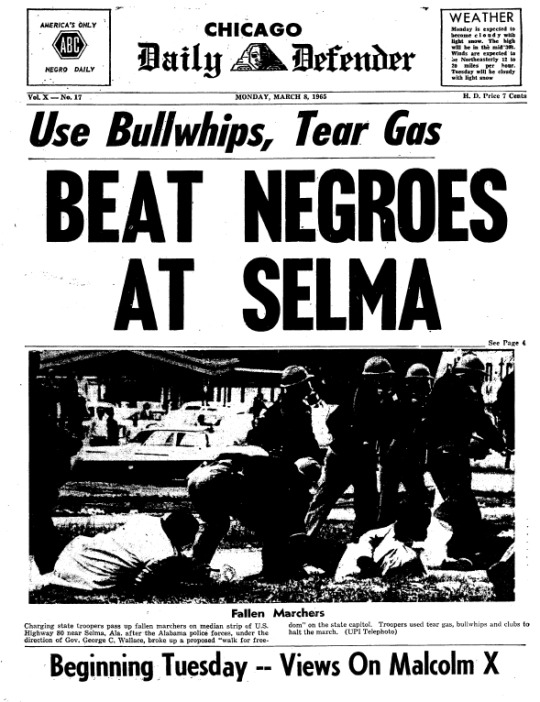
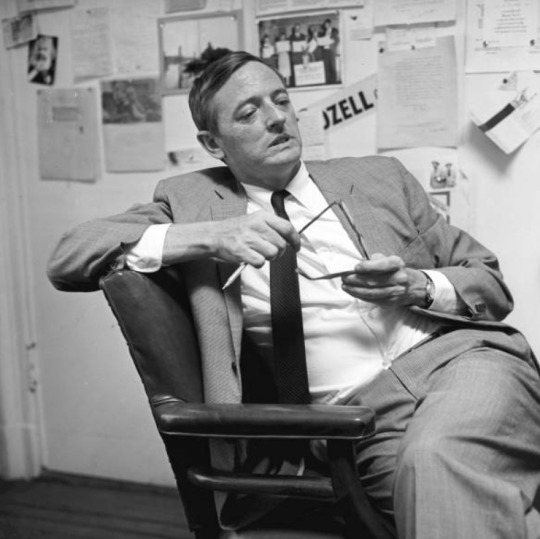

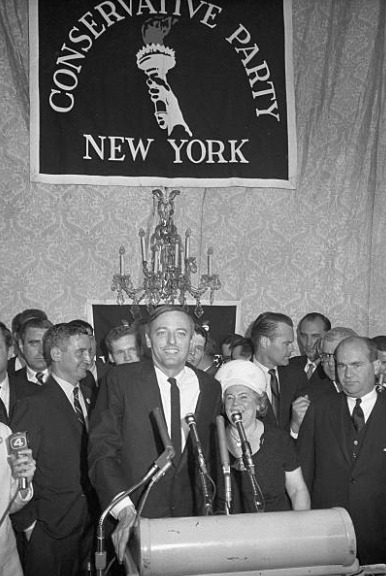
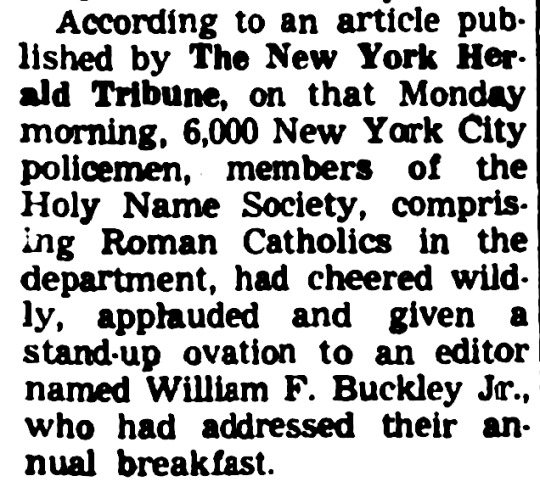
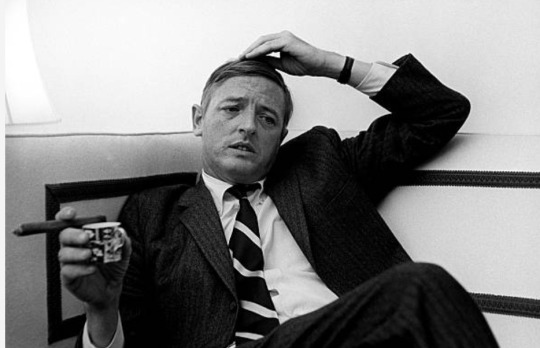
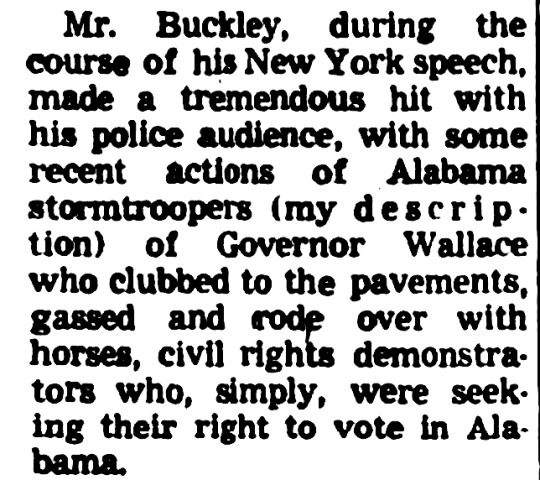

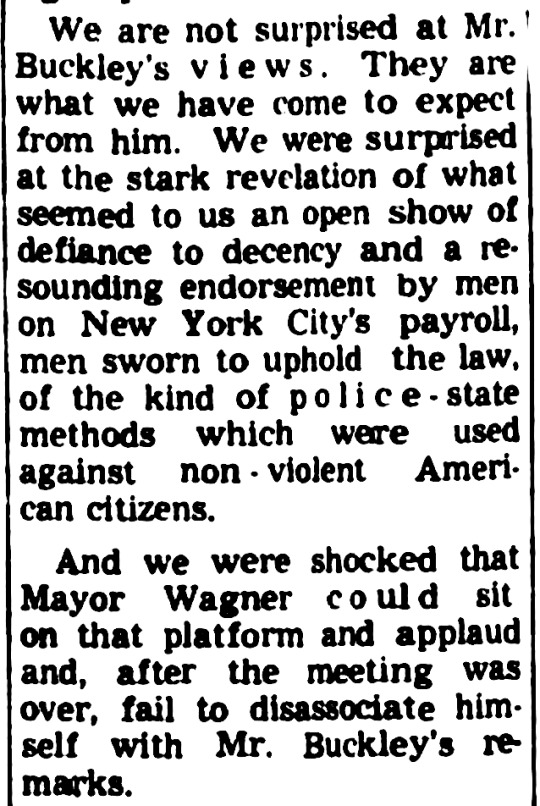
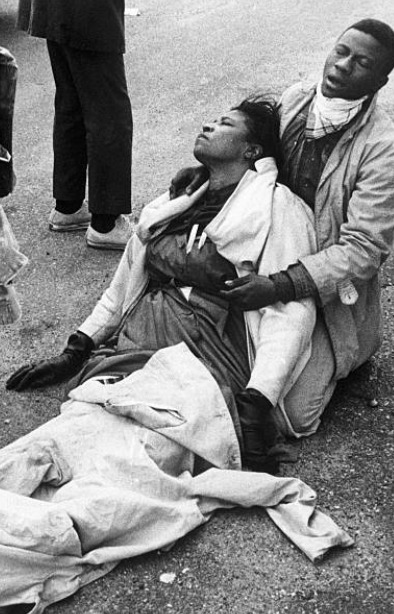
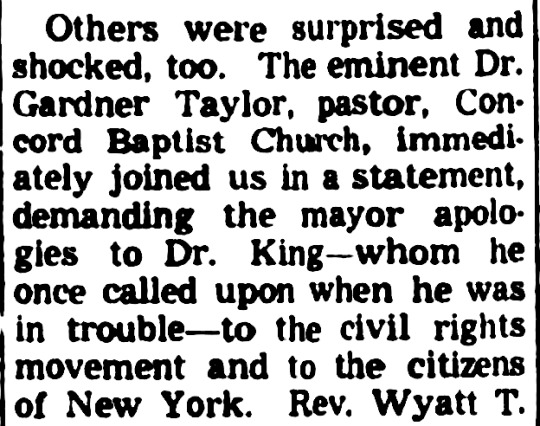
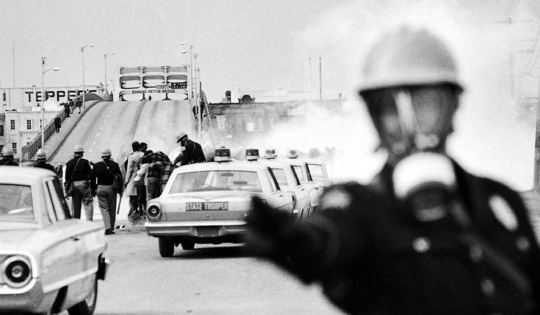
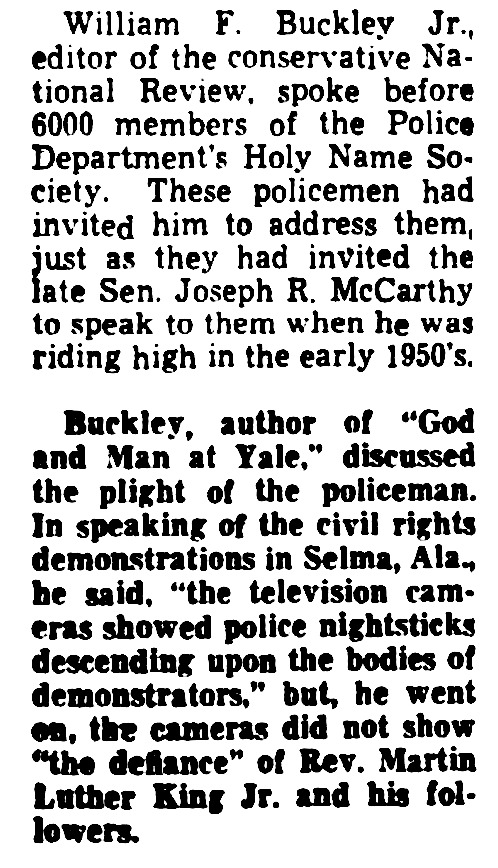

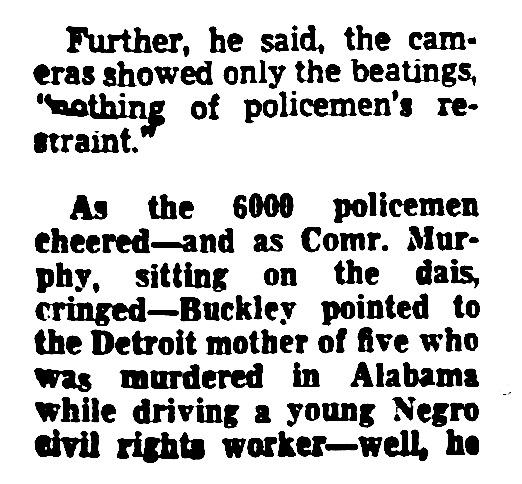



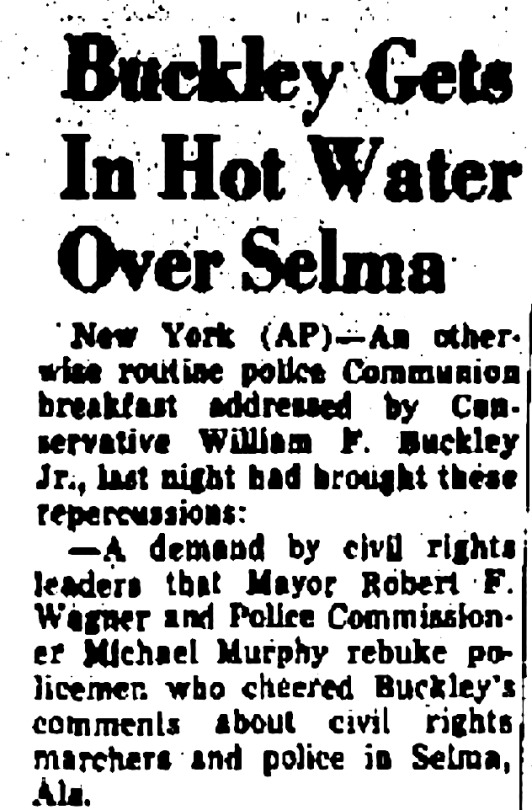
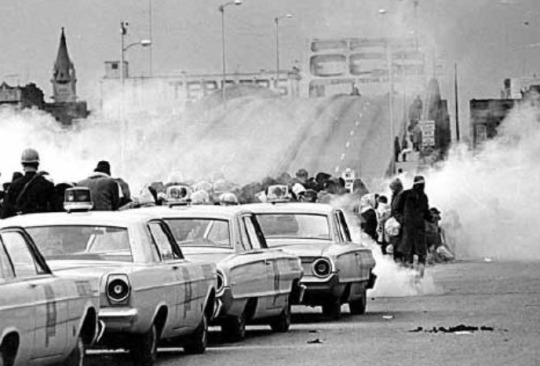
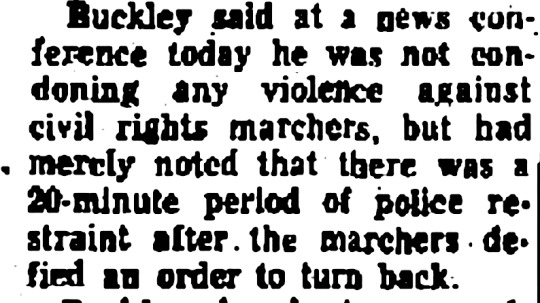

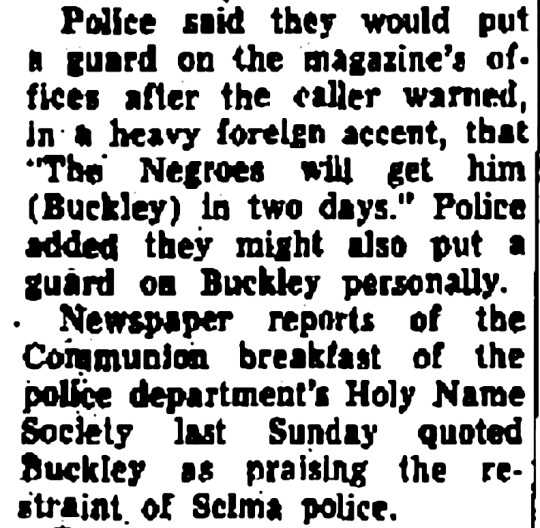

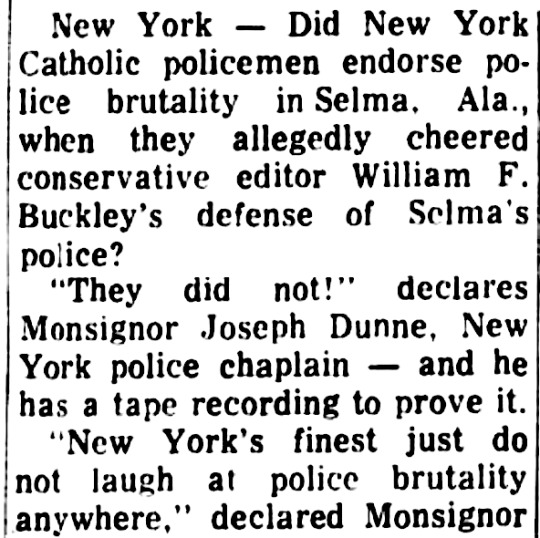
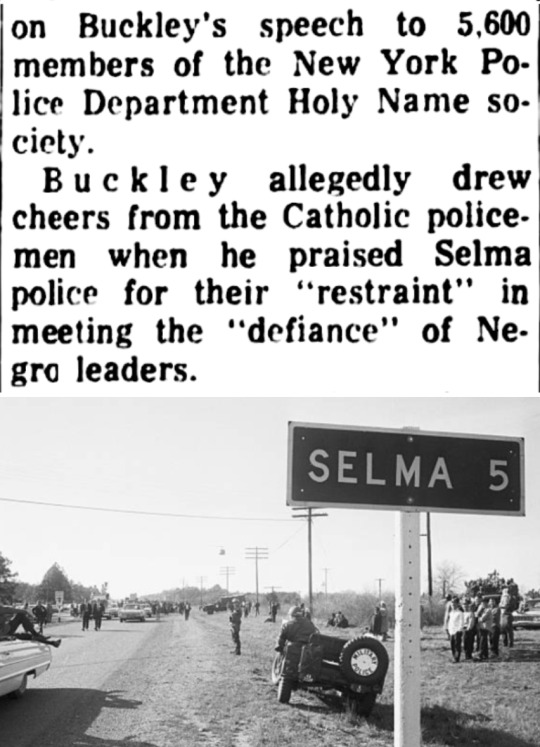
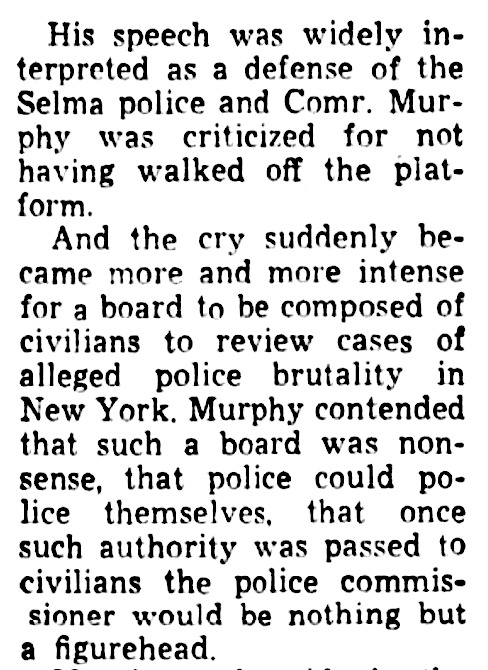
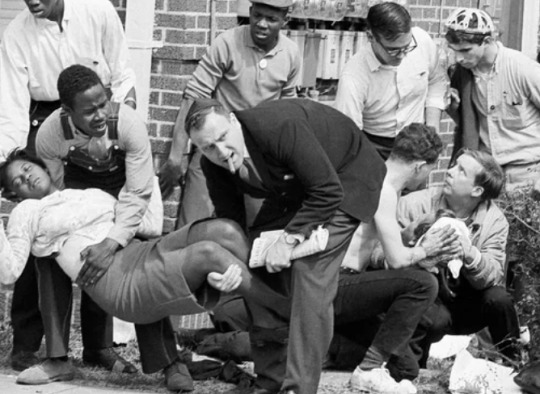
1965.
Conservative mouthpiece William F. Buckley said the police brutality against Civil Rights Marchers in Selma, Alabama was justified.
73 notes
·
View notes
Text

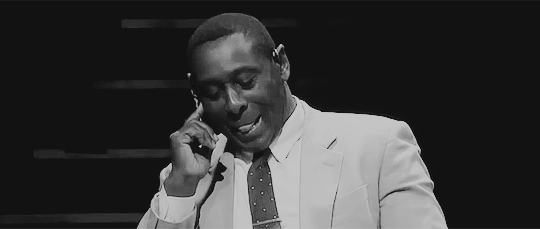

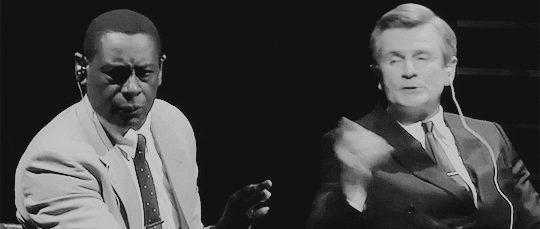


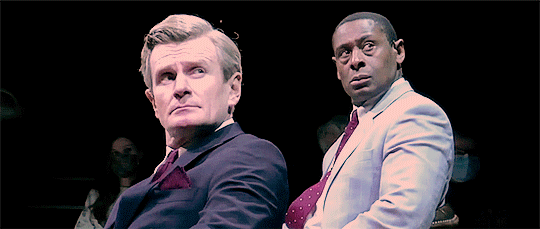
Charles Edwards and David Harewood in the Olivier-nominated Best of Enemies at the Young Vic, directed by Jeremy Herrin (2021-22)
#charles edwards#david harewood#gore vidal#william f buckley jr#best of enemies#theatreedit#young vic theatre#off west end
45 notes
·
View notes
Photo

Amber Heard, (Instagram, January 04, 2020)
—The Fire Is Upon Us: James Baldwin, William F. Buckley Jr., and the Debate Over Race in America, Nicholas Buccola (2019)
#amber heard#the fire is upon us#The Fire Is Upon Us: James Baldwin William F. Buckley Jr. and the Debate Over Race in America#Nicholas Buccola#books#celebrities
10 notes
·
View notes
Text
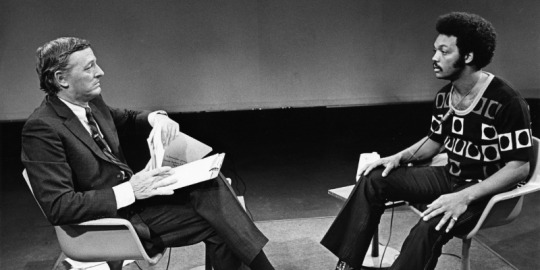
Picture this: a documentary about one of the most prominent figures in the 20th century
Someone who dedicated their life to fighting against the Ku Klux Klan. Now imagine watching that documentary and realizing that it completely glosses over the evil nature of the KKK and according to The Library of Congress was in sympathy with the Democratic party. Seems absurd, right? Well, that’s exactly what has happened with a recent PBS documentary on William F. Buckley Jr.
William F. Buckley Jr. was a towering intellectual and conservative commentator who vehemently opposed the KKK and its racist ideology. He used his platform to denounce their hate-filled rhetoric and stood up for racial equality. It’s baffling that a documentary about his life would choose to ignore the very evil he fought against. By omitting any mention of the KKK’s evil, this documentary fails to provide a comprehensive understanding of Buckley’s work and beliefs.
One of the most glaring misrepresentations in the documentary is the omission of Buckley’s commitment to intellectual diversity. Throughout his career, Buckley was known for engaging with individuals from all walks of life, regardless of their political beliefs. He prioritized thoughtful debate and intellectual discourse, seeking to challenge and be challenged by opposing viewpoints. Yet, PBS seems to conveniently ignore this aspect of Buckley’s legacy, instead choosing to present him as a rigid ideologue.
The documentary, titled “Buckley: A Legacy Reimagined,” paints a rather one-dimensional picture of Buckley, reducing him to a mere caricature of conservative ideology. It fails to delve into the nuanced arguments and intellectual depth that made Buckley such a formidable force in the conservative movement. A documentary should strive to present an accurate portrayal of its subject, shedding light on both their achievements and the challenges they faced.
0 notes
Text
I am obliged to confess I should sooner live in a society governed by the first two thousand names in the Boston telephone directory than in a society governed by the two thousand faculty members of Harvard University.
William F Buckley Jr.
0 notes
Text
Watch "James Baldwin v. William F. Buckley (1965) | Legendary Debate" on YouTube
youtube
"Has the American Dream been achieved at the expense of the American Negro."
#Youtube#james baldwin#william buckley#william f buckley#william f buckley jr#the american dream#cambridge university#cambridge university debate#1960s#1965#civil rights#cambridge union
1 note
·
View note
Quote
I would like to take you seriously but to do so would affront your intelligence.
Bugs Bunny to Elmer Fudd
0 notes
Text
A Futile and Stupid Gesture 2: Bucking the Trend Line
Less a sequel than a second version of A Futile and Stupid Gesture, this one instead focuses on William F. Buckley, Jr.'s time at Yale, through the founding of the National Review, up until the SEC crackdown on several of his businesses in the late 1970s and early 1980s. And the cast is the exact same cast from the first movie, with everyone taking on different roles, though Will Forte again portrays the writer at the center of the story, in this case Buckley rather than Kenney.
#bad idea#movie pitch#pitch and moan#a futile and stupid gesture#biopic#doug kenney#josh karp#david wain#will forte#national lampoon#national review#writer#conservatism#william f. buckley#william f buckley#william f buckley jr#douglas kenney#yale#yale university
1 note
·
View note
Text
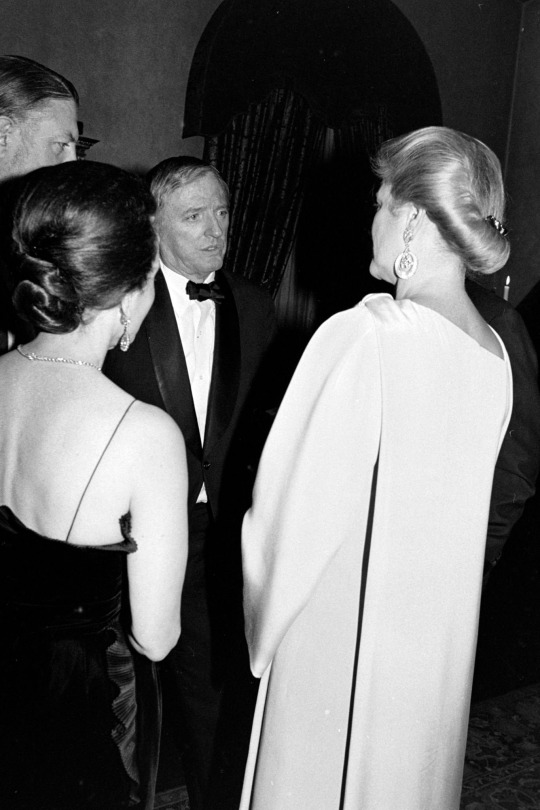
William F. Buckley Jr. and Princess Grace of Monaco (back to camera) attend a party at the Lauder residence in New York City on December 12, 1980.
6 notes
·
View notes
Text
In a 1986 interview, Netanyhu does an amazing job describing himself 37 years later, when asked by the interviewer (William F Buckley Jr.) to define terrorism. At the time he was Israel's ambassador to the U.N.
No one can talk about terrorism better than a terrorist.
#benjamin netanyahu#israeliterrorism#israel#gaza#free palestine#netanyahu a criminal of war#netanyahu#palestine#free gaza#فلسطين#jerusalem#israel is a terrorist state#israel is a war criminal#israelis are terrorists#Israelis are war criminals#i stand with palestine#gaza under attack#gaza under genocide
627 notes
·
View notes
Text
"No fewer than twenty-nine of my [research] cards document [Ronald] Reagan's detachment. He was at once the most remote and the most accessible of men. Although he reveled in the constant flesh-pressing of the Presidency, and ate up flattery with a spoon, he needed regular spells of 'personal time.' Glance through the Oval Office peephole and you would see him happily writing in longhand, always with his tie straight and jacket on, ensconced in an egglike solitude that the curvature of the lens only emphasized.
Adored by so many, he was a man with no real friends. This was not due to any inherent misanthropy...Until he remarried in 1952, earnest, bespectacled Ronnie was said to be 'best friends' with [actor] William Holden, and after that with Robert Taylor. But neither man was more than a barbecue buddy. Hundreds of political supporters and associates claimed to be close to him when he was Governor of California and thousands during his Presidency. Former Senator Paul Laxalt spoke for all of them when he said, 'I guess I know Ronald Reagan as well as anybody. Of course we never talk about anything personal.'
Sooner or later, every would-be intimate (including his four children, Maureen, Michael, Patti, and Ron) discovered that the only human being Reagan truly cared about (after his mother died) was Nancy. For Laxalt, disillusionment came when the President called to thank him for his campaign help in 1984, only to pause in midsentence and audibly turn over a page of typescript. For William F. Buckley Jr., it was when Reagan showed polite relief at his inability to accept an offer of hospitality. For Michael Reagan, it was the high-school graduation day his father greeted him with 'My name is Ronald Reagan. What's yours?'
Patti Davis, Reagan's younger daughter, writes in her 1992 autobiography:
'Often I'd come into a room and he'd looked up from his notecards as though he wasn't sure who I was. [Youngest son] Ron would race up to him, small and brimming with a child's enthusiasm, and I'd see the same bewildered look in my father's eyes, like he had to remind himself who Ron was...I sometimes felt like reminded him that Maureen was his daughter, too, not just someone with similar political philosophies.'
Reagan's scrupulously kept Presidential diary is remarkable for a near-total lack of interest in people as individuals. In all its half-million or so words, I did not find any affectionate remark about his children. He conscientiously named every visitor to the Oval Office, having a printed schedule to refer to, but in conversation he tended to rely on pronouns. Nor did he pay much attention to faces. 'Nice to meet you, Mr. Ambassador,' he greeted Denis Healey, the former Defense Minister of Great Britain, while the real British Ambassador stood by. 'But I've already met him,' his Excellency [the Ambassador] complained, 'eleven times.'"
-- Edmund Morris, Ronald Reagan's authorized biographer, on President Reagan's aloof personality, "The Unknowable: Ronald Reagan's Amazing, Mysterious Life," The New Yorker, June 28, 2004.
#History#Presidents#Presidency#Presidential History#Ronald Reagan#President Reagan#Reagan Administration#Presidential Personalities#Edmund Morris#First Families#Dutch: A Memoir of Ronald Reagan#Quotes About Presidents#The Reagan Diaries#Patti Davis#Reagan Family
53 notes
·
View notes
Text
"The largest cultural menace in America is the conformity of the intellectual cliques which, in education as well as the arts, are out to impose upon the nation their modish fads and fallacies, and have nearly succeeded in doing so. In this cultural issue, we are, without reservations, on the side of excellence (rather than 'newness') and of honest intellectual combat (rather than conformity)."
William F Buckley Jr. (1925-2008) American Conservative commentator and publisher
80 notes
·
View notes
Text
“Life can't be all bad when for ten dollars you can buy all the Beethoven sonatas and listen to them for ten years.” -- William F. Buckley Jr.
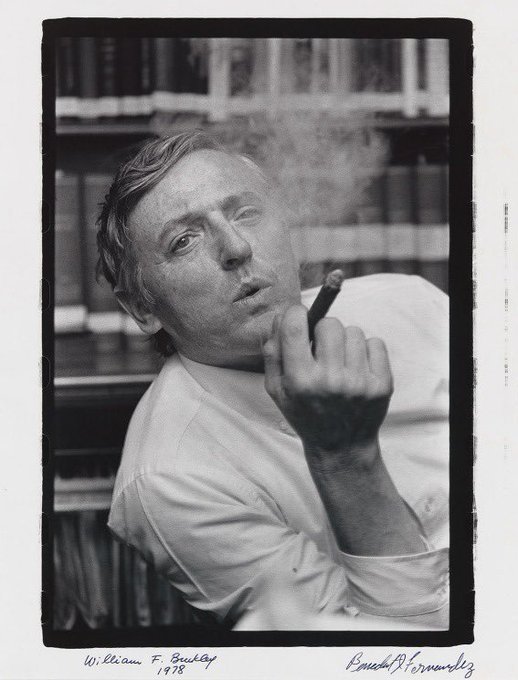
Happy belated birthday, Ludwig van Beethoven, born on the 16th of December, 1770
Via The Durham WASP
29 notes
·
View notes